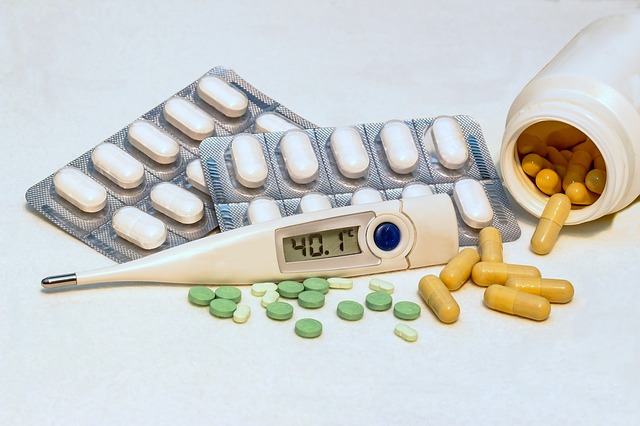Chronic illness is challenging for anyone who experiences it. There are hidden issues just under the surface that rear their ugly heads for people who are chronically ill, usually at our most vulnerable times. My issues with my physical health often mirror my issues with substance misuse and mental health, and my management of both are similar. It’s also true for me that both are intrinsically linked.
I have struggled with physical illness all my life. Since I was four years old, I have fought a constant battle to keep myself alive and functioning. First came idiopathic thrombocytopenic purpura, a nasty blood clotting and platelet disorder that almost had me. Then by age seven I developed Type 1 Diabetes, and just recently (at age forty-four) I developed Hashimoto’s Disease. It’s a thyroid condition that basically makes you feel like curling up and dying. They are all interlinked, and one leads to another. The mental and emotional strain of dealing with lifelong chronic illness was a perfect recipe for my substance misuse.
Poor health from such a young age changes your experience of the world. It makes you fearful, anxious and unsure of everyone and everything, including your own body. It exhausts your mind, body and spirit to a level that I can’t quite convey. You feel different, apart from, and as a small child, feeling this way was extremely isolating.
I was – and still can be – shame-filled and guilt-ridden because of my health. I didn’t want to miss school, stand out or have my illness make me different, so I retreated into myself. Even writing this essay is a monumental task because I am fighting the deep-seeded belief that by speaking about my ill health, I’m appearing self-pitying, different, at fault, selfish, a liability – ugh, I can feel all that rising in my chest.
Which leads me to what entering into recovery taught me about dealing with my chronic physical ill health. These gems of wisdom play out in my life on a daily basis.
It starts with acceptance –
Admission is the start of change. If you cannot admit there is a problem, then you cannot change the problem. That goes for every aspect of life, including physical health.
You cannot do it alone –
You have to ask for help. The adults in my life once had this responsibility, and because of their willingness to help me, I’m thankfully still alive. Now I have to do it myself, and that’s my biggest challenge. I mentioned before how I feel like I’m a liability in other peoples lives, so asking for help challenges me. But I’m doing it.
Take responsibility for yourself –
Now this is huge, and I can safely say, the one thing I’m really good at. I am proud to say that I am living with Type 1 Diabetes for 38 years, that nobody has ever had to inject my insulin since day one (except for the nurse who taught me when I was seven) and that I am diabetes-complication free. And that fact is no fluke. I see my diabetes specialist for maybe twenty minutes every six months, but what do I do for all the other hours I’m not with him? It is my own research, study and applying what works for me, that has kept me as well as I am despite all my struggles. Diet, exercise, supplements, and a deep understanding about how my body works have kept me standing upright. What can you do for yourself?
You are not selfish –
Recovery taught me the difference between a selfish act and a self-caring act. It’s about outcomes. So, you ask yourself the question – if I carry out this action, what are the consequences? In relation to my health, if I ignore my symptoms, hide my illness, push myself past my limits, or don’t care for myself appropriately, what are the outcomes for myself and those around me? There could be further illness, a family without a functional mother, or a dead one, or trauma…the list is endless. I don’t need to tell you what the consequences are if you use, or drink, or act out any of your self-abuse, do I? The consequences are very similar.
Talk it out –
Okay, so I’m still learning this one when it comes to my physical health. I can talk about anything else in the world, including my substance misuse, without worry or stress. Talking about being sick is another story. But this is a start, I guess. I’m still unsure if I will actually publish this or not…so if you’re reading it, you know I’ve gritted my teeth, shut my eyes really tight and pressed the publish button.
A good friend of mine said just the other day,that every bump in the road is an opportunity for learning. He’s right and boy do I love to learn. This list could go on for days, but I hold these gems dearest to my heart. I hope they have value for you also.








2 Comments
Hearing u. Got diagnosed with chronic pancreatitis from alcoholism and wow Wat a challenge. I thought addiction was difficult but it was just preparation for this!!
Thanks for sharing. It is ok to be vulnerable yet scary. Any time there is chronic illness it is a daily challenge. It is truly one day at a time just as recovery is and we all need a little help from our friends. I admire your courage and can relate to what you experience. We all walk that rode together.